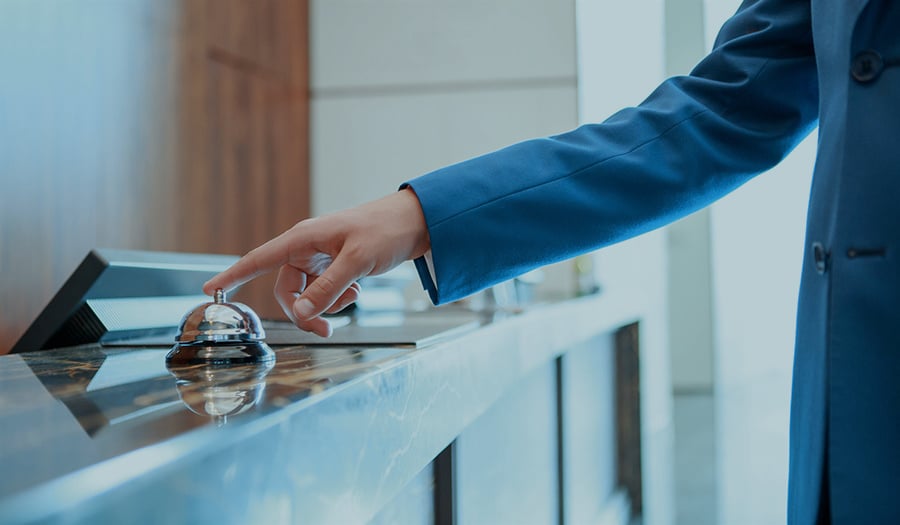Benefits of implementing a CRM in a small business
Today, small businesses need to maximize efficiency and maintain strong relationships with their customers to thrive. This is where a Customer...
By Role
By Industry
By Target Customer
What We Offer
We drive business growth by improving operational efficiency through process optimization, smart automation, and cost control. Our approach boosts productivity, reduces expenses, and increases profitability with scalable, sustainable solutions
Customer Experience
We design memorable, customer-centered experiences that drive loyalty, enhance support, and optimize every stage of the journey. From maturity frameworks and experience maps to loyalty programs, service design, and feedback analysis, we help brands deeply connect with users and grow sustainably.
Marketing & Sales
We drive marketing and sales strategies that combine technology, creativity, and analytics to accelerate growth. From value proposition design and AI-driven automation to inbound, ABM, and sales enablement strategies, we help businesses attract, convert, and retain customers effectively and profitably.
Pricing & Revenue
We optimize pricing and revenue through data-driven strategies and integrated planning. From profitability modeling and margin analysis to demand management and sales forecasting, we help maximize financial performance and business competitiveness.
Digital Transformation
We accelerate digital transformation by aligning strategy, processes and technology. From operating model definition and intelligent automation to CRM implementation, artificial intelligence and digital channels, we help organizations adapt, scale and lead in changing and competitive environments.
Operational Efficiency
We enhance operational efficiency through process optimization, intelligent automation, and cost control. From cost reduction strategies and process redesign to RPA and value analysis, we help businesses boost productivity, agility, and sustainable profitability.
Customer Experience
Marketing & Sales
Pricing & Revenue
Digital Transformation
Operational Efficiency
There are several ways to measure and increase the sales levels of a store, either online or physical, and one of them is to increase the average amount that my customers spend in the store; And since every product store lives in a constant search for ways to increase its sales levels, today we are going to see 5 ways to increase that AOV (average order value).
It consists of dividing the income generated in the store by the number of orders received during that certain period.
Average Invoice (AOV) = Revenue / # of orders generated
So, if, as an example, you have $ 2,000 as income and 200 purchases were received, you get an AOV of $ 20 for each purchase.
This is something extremely valuable because it allows us to have an idea of how long to expect during the strategies that we want to carry out in the future within the store and to understand what good, bad, risky or safe options are. For example, if it is possible to know that to get one more client, we are going to require $ 25 dollars, with the AOV of $ 20 we can see that that extra client is not profitable.
Now, as we can see in our series of Blogs about the loyalty of our clients, it is always more economical to try to make an increase through clients who identify with our brand compared to those who do not consider themselves our clients or even have not made the first purchase.
When entering a client, the client always ends up in one of two possible options, finding or not finding what they were looking for. Therefore, it is less expensive for companies to increase sales through repeat customers or to some extent loyal to the brand. The loyal customer when he finds what he is looking for in the store considers the option of continuing to observe if there is something that catches his attention, but what distinguishes him from the first-time customer is that even when he did not find what he was looking for when he entered, he keeps visiting and in the same way look with the possibility of making a purchase.
1. First time strategies (in a category or in the store): A certain discount or percentage is shown as an incentive, responding to the first time the customer consumes a certain product. By understanding the consumption patterns and the categories that our client has already consumed, an incentive is offered to them so that they also trust some other product that they have not yet consumed. For first-time customers it can be offered both for certain specific categories that are strategic to increase the value of the invoice or also for the global store. The disadvantage of making it global is that we lose control of the type of product with which it is going to be redeemed and therefore the possibility of choosing promotions according to their margin or profitability is lost.
2. Generation of interactions and experiences with the buyer: We are currently living during an economy of experiences; it is the company that decides whether to join through good experiences or wait for an eventual bad experience to keep its customers away from the stores. The loyalty of our clients is not obtained through better prices, it is obtained through the understanding of the Buyer Persona and considering not only what they buy but also the fact of what we can do to generate pleasant experiences. What is proposed is the generation of "Challenges" through social networks to win a product or good that is being sold. In this way, customers enter and continue to feel part of the brand, but at the same time they crave new customers to join.
3. Building a Loyalty Program : A loyalty program is one of the most effective and inexpensive ways to increase your average order bill. Offering rewards for completing certain actions, such as spending a certain amount, will encourage people to spend a little more in order to redeem the rewards. For this, it is particularly important to always do it with the focus on the company's Buyer Personas.
For products that people already need to buy again, a loyalty program is an effective retention strategy that can increase the customer's willingness to spend and thus the value of the order and the value of customer life.
4. Cross-Sell & Up-Sell: Both techniques consist of using the product that is being viewed by the client and turning around it, offering a product or service that may interest them.
In the case of Cross Sells, what is sought is that, as I already mentioned, having the client on the page of a product that interests him, generate options for products that are similar or that complement the product he was following in a particularly good way. buying.
Now, if we talk about Up-sales, most of these projections consist in that, by the nature of the product, whether it is an exclusive version or not, some type of extra payment can be sold on what the client already had in your cart.
Now if, understanding the concept and the implications of increasing AOV, it is important to mention that the strategies that are carried out to increase it are not exclusive in any way nor are they totally restricted to the fact that it is herself who decides what she wants to do with her future. Using the tools, we saw today, we increased our average store bill and therefore walked.


Today, small businesses need to maximize efficiency and maintain strong relationships with their customers to thrive. This is where a Customer...

The capacities of the sales team are finite by time and availability, in principle a person can be available an average of 8/6, which limits their...

A challenge that all companies face is how to operate in the middle of a sea of systems and platforms for the management of their organizations, of...